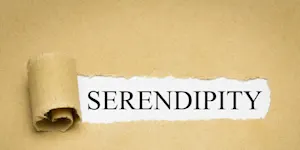What Makes This Word Tick
"Deference" carries with it a sense of deep respect and regard — it’s about the gentle act of yielding to someone else’s judgment or preferences. In its humble existence, it navigates the fine line between respect and submission, often gracefully stepping back to let others take the lead. It’s a word that wears a polite, understanding smile, always ready to admire others from the sidelines.
If Deference Were a Person…
Deference would be the courteous individual at a dinner party who knows just the right moment to give a compliment or let others shine in conversation. They don’t seek the spotlight but instead find joy in seeing others appreciated. With an air of quiet confidence, this person effortlessly makes everyone feel valued and respected.
How This Word Has Changed Over Time
Originally, "deference" had roots in the Latin word "deferre," meaning to bring down or carry away. Over time, its connotation softened and transformed into the genteel deference we recognize today — more about honor and esteem than merely obliging or yielding.
Old Sayings and Proverbs That Use Deference
While there aren't numerous direct proverbs featuring "deference," the spirit of the word is echoed in many sayings such as "respect is earned, not given." The essence of patiently standing back to recognize another’s knowledge or authority resonates throughout proverbial wisdom.
Surprising Facts About Deference
Interestingly, deference finds itself fundamental to courtroom etiquette, where lawyers and judges often refer to "deferring to the court’s judgment." This acknowledgment of the court’s authority exemplifies deference in action, showing that even in formal contexts, respect can wield substantial influence.
Out and About With This Word
Deference might take a stroll through diplomatic lingo, frequently popping up in discussions of international relations, where respecting another country’s sovereignty or traditions is paramount. It’s the passport word that opens doors by respecting boundaries and customs.
Pop Culture Moments Where Deference Was Used
In popular TV dramas like "The Crown," deference comes to life when characters interact with royalty, intertwining courtesy and duty. The respectful bows and meticulous etiquette remind viewers just how significant deference can be when the stakes are high and the audience is royal.
The Word in Literature
In literature, deference finds a cozy home in the works of Jane Austen, where characters often grapple with social hierarchies. Whether through Elizabeth Bennet’s charming assertiveness or Mr. Darcy’s evolving manners, deference shapes the delicate dance of societal roles and respect.
Moments in History with Deference
The signing of peace treaties often reveres deference as a guiding principle. Picture the scene of the armistice agreements, where adversaries must put aside differences and acknowledge each other's demands, creating a tapestry woven with mutual respect and concessions.
This Word Around the World
In Japan, a country famous for its emphasis on honor and respect, "deference" is visible in cultural practices like bowing. The act signifies more than courtesy; it’s an embodiment of the profound respect and recognition that deference encapsulates worldwide.
Where Does It Come From?
"Deference" strolls down the etymological path from Latin to Old French before settling into English parlance in the 17th century. Its transformation through languages retained the core of "bearing away" but softened into a gentle yielding or respect.
How People Misuse This Word
Sometimes, people confuse "deference" with total submission or servility, missing its core essence of mutual respect. Deference isn’t about losing oneself but about a respectful acknowledgment of others.
Words It’s Often Confused With
Difference: While it sounds similar, this relates to distinctions or disagreements rather than respect.
Defiance: The opposite of deference, this is all about resistance rather than yielding.
Deferment: A pause or postponement, often unrelated to the respect-based nature of deference.
Additional Synonyms and Antonyms
Synonyms for "deference" include respect, regard, and honor. Antonyms would be disrespect, defiance, and disobedience.
Want to Try It Out in a Sentence?
Consider this: "She handled the situation with such grace and deference, acknowledging his expertise while offering her own insights thoughtfully."
















